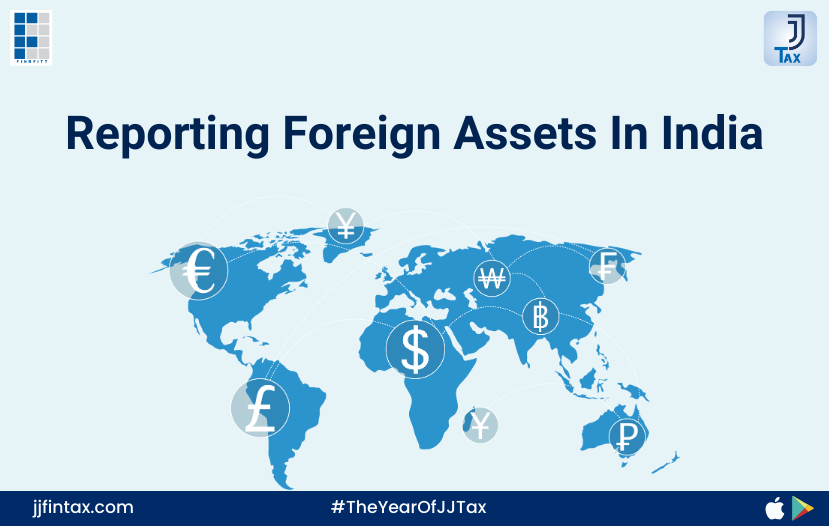Double Taxation Avoidance Agreements📝

Designed to avoid the taxation of income twice, the Double Taxation Avoidance Agreements (DTAA) that India has entered into with various countries play an important role in the tax treatment of Foreign assets and Income.
As India's economy grows, so does the number of individuals and businesses with foreign assets. Whether it's offshore bank accounts, foreign real estate, or investments, the scope of foreign assets owned by Indian residents is expanding rapidly.
In our ongoing commitment to keeping you informed and prepared for your financial responsibilities, we are back with another newsletter. In today’s newsletter, we will address the obligation to submit tax returns for assets located outside India, as mandated by the Income Tax Act.
As per the provisions of Section 139 of the Income Tax Act, 1961, residents of India who are beneficial owners of any assets located outside India or have any foreign account are required to file an Income tax return. This holds true even if their income is below the basic exemption limit.
Overseas assets encompass a wide range of holdings, including but not limited to:
● Immovable Property: Property ownership, such as houses, apartments, and land located outside India, is subject to reporting.
● Financial Assets: Bank Accounts: Any bank accounts held outside India, including savings, current, and fixed deposit accounts, are subject to reporting.
● Investments: This covers foreign mutual funds, stocks, bonds, and securities.
● Business Interests: If you have a business, partnership, or investment in a foreign entity, including shares or interest in a foreign company, it falls within the purview of reporting.
● Trusts and Foundations: Assets held in foreign trusts, foundations, or similar entities must also be declared.
It’s important to note that these assets can be held and dealt with in any manner, even after an NRI returns to India for permanent settlement. However, they are subject to reporting under the Income Tax Act.
As per the provisions of Section 139 of the Income Tax Act, 1961, residents of India who are beneficial owners of any assets located outside India or have any foreign accounts are required to file an Income Tax return. This holds true even if their income is below the basic exemption limit. It is crucial to understand the scope of these overseas assets, as compliance with these reporting requirements should be your priority.
The Legal Mandate
As per the provisions of Section 139 of the Income Tax Act, 1961, residents of India who are beneficial owners of any assets located outside India or have any foreign accounts are required to file an income tax return, this holds true even if their income is below the basic exemption limit.
Reporting Requirements
The income tax return contains a 'Schedule FA' for the declaration of foreign assets or accounts in respect of which you are a beneficiary or a beneficial owner. The taxpayer has to report the details in ITR-2 or ITR-3, whichever ITR form applies to them.
Disclosure Requirements
The resident taxpayer (resident but ordinarily resident) has to mandatorily provide all information about foreign assets, accounts, etc., in Schedule FA of the ITR form in a specified format. The details include peak balance during the accounting period, closing balance, nature of foreign income, etc.
Foreign assets can include foreign depository accounts, foreign equity and debt interest, immovable property outside India, any other capital asset outside India, a foreign cash value insurance contract, or an annuity contract any other income derived from a foreign source. It also includes details of trusts created outside India in which the taxpayer is a beneficiary or settlor and has a financial interest in any entity outside India.
Schedule FA is a section in the Income Tax Return (ITR) where individuals declare their foreign assets. These could include bank deposits, custodial accounts, equities, insurances, and real estate properties held outside India. The aim of Schedule FA is to enhance tax transparency and prevent offshore Tax evasion.
Introduced to combat tax evasion and money laundering, Schedule FA has been an integral component of the ITR forms since FY 2011-12 (AY 2012-13). Under this schedule, individuals (ordinarily resident in India) must disclose details of their foreign assets and income, irrespective of whether the income is taxable in India or not.
Reporting of such foreign assets, accounts, etc., shall be made for the foreign assets or accounts acquired during the relevant accounting period of the foreign country.
When it comes to reporting overseas assets, here are some key considerations:
● Timely Filing: Ensure you file your tax returns on time. The due date for filing tax returns can vary, so stay updated with the latest deadlines.
● Disclosure of All Assets: It is essential to disclose all your overseas assets, income, and financial interests accurately. Failing to do so can lead to penalties and legal consequences.
● Consult with Tax Experts: Taxation of foreign assets can be complex due to the interplay of Indian tax laws and international agreements. Seeking advice from tax experts is advisable to ensure compliance.
● Use DTAA Provisions: Leverage the benefits offered by DTAA provisions to avoid double taxation and claim tax credits where applicable.
As the global footprint of Indian residents expands, staying informed about your tax obligations regarding overseas assets will be of immense help to you. Compliance with these obligations not only ensures you are on the right side of the law but also helps you make the most of the benefits.
We hope you find this information valuable in managing your international financial affairs. Stay tuned for more updates on taxation and financial matters.
Don't refrain from reporting overseas assets.
Stay tax-compliant; it's the golden rule!

